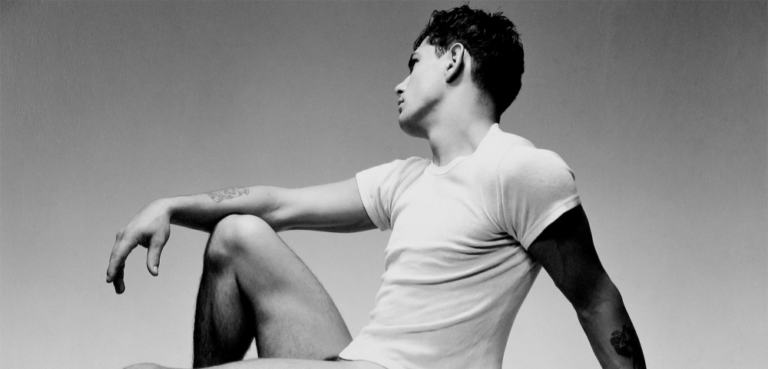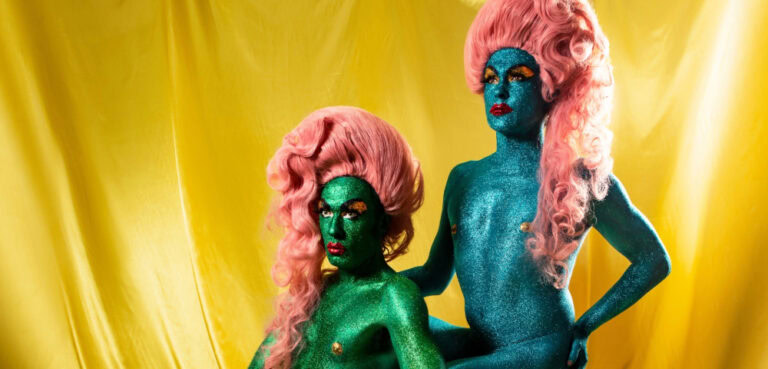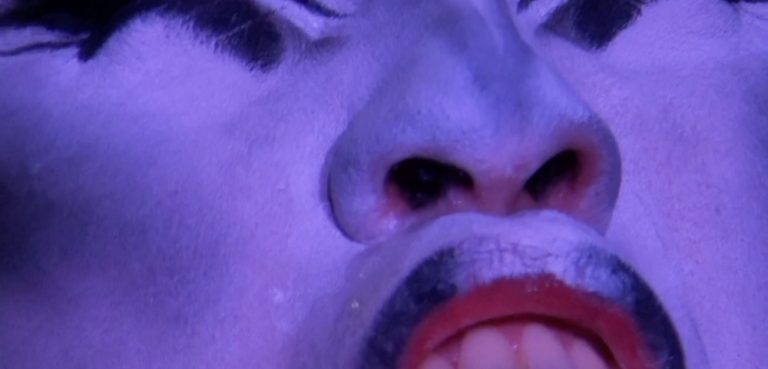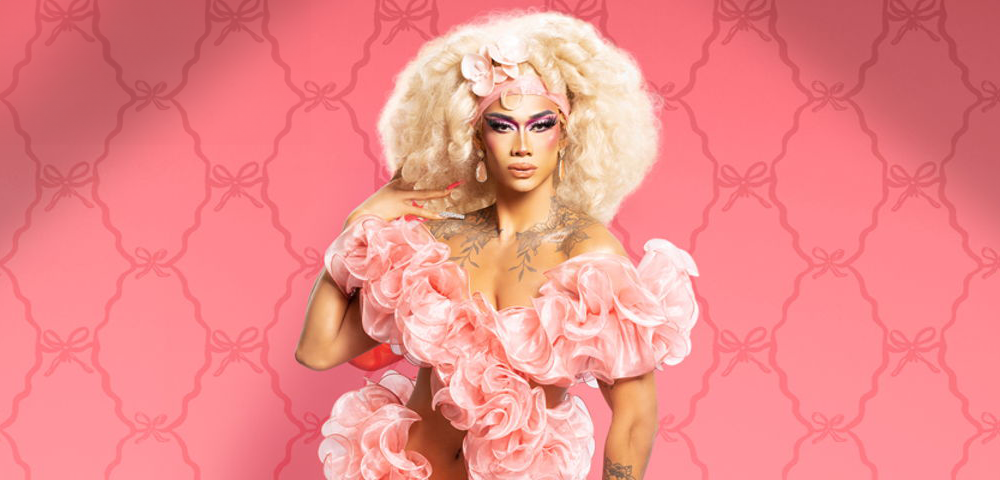
The year in review
The year 2006 began with promising news from federal politics and closed with an historic state reform, but news in the intervening months was a mixture of the good, the bad and the plain old ugly.
In January, a group of federal Liberal MPs, including former Queensland crocodile farmer Warren Entsch, bucked the Coalition trend and spoke out in support of same-sex civil unions. The MPs’ support for gay and lesbian relationship reform -“ and Entsch’s advocacy in particular -“ would make news throughout the year.
Later that month, Australia’s sluggishness on reform was highlighted when the British government opened its same-sex civil partnerships scheme to citizens living here. Other countries are moving forward -¦ and by contrast Australia seems to be actually going backwards, activist Sharon Dane told the Star after she and her partner formed a British civil partnership in Brisbane later in the year.
As January ended, lesbian tennis star Am?e Mauresmo got the Grand Slam monkey off her back by winning the Australian Open. Mauresmo went on to win Wimbledon in July.
The federal reform campaign continued in February as a national Newspoll survey found 52 percent of respondents supported gay relationship recognition.
As the Mardi Gras month neared, the big news was the return of the season Launch to the Sydney Opera House. But the event was decidedly less stellar than the setting. The ticketed season opener was plagued by technical problems and inefficient bar service, prompting community anger and a major rethink. New Mardi Gras has since announced the 2007 Launch will be a free Flash Mob event.
New Mardi Gras’ fortunes turned at Fair Day as an estimated 75,000 people celebrated in Victoria Park. A couple of weeks later the Mardi Gras parade and party featured politics and parody and were hailed as among the most successful yet. New Mardi Gras later announced a $91,000 cash profit on the season.
Oxford Street stayed in the headlines as reports of anti-gay violence on the newly upgraded strip continued. The ongoing homophobic attacks -“ and the search for an effective response -“ comprised one of the year’s biggest stories.
Other states were also in the news in March. In the lead-up to the Tasmanian election, anti-transgender advertisements allegedly placed by extremist religious group Exclusive Brethren drew legal action from the state’s gay and lesbian community. Activists are waiting for a court ruling. In South Australia, the gay community hoped a Labor state election win would finally mean legal recognition for same-sex couples, but the wait continued.
And in Victoria, figures showing a 28 percent rise in HIV notifications in one year prompted speculation gay men were taking less notice of safe-sex messages. Figures released later in the year showed a 41 percent increase in national HIV diagnoses in the previous five years. The news inspired the grassroots RugUp safe-sex campaign during winter. Organisers signed up considerably fewer than the target of 10,000 gay men, but still raised awareness.
One of the year’s biggest news stories had unfolded in March when the ACT’s Labor government introduced a civil unions bill aimed at functional equality. Activists’ cheers were short-lived when the federal government announced it would veto the bill unless it was rewritten, claiming the reform would equate civil unions with marriage.
The ACT’s Labor government amended the bill and pushed it through parliament in May, but the fight wasn’t over. The Commonwealth pressed ahead with its threatened veto, angering same-sex couples and activists, who lambasted the Howard government’s straight Australia policy.
In April, the Human Rights and Equal Opportunity Commission opened its national inquiry into financial discrimination against the gay community. The investigation attracted moving personal stories as well as high-level opposition, with the federal government blocking departments from making submissions. In NSW, activists pressed for same-sex adoption, but a state government inquiry held back on recommending the reform.
ACON again called for a full-time gay and lesbian liaison officer (GLLO) position at Surry Hills Police. The long-standing sticking point was partly dealt with in October, when NSW Police announced all Surry Hills officers would be trained in gay and lesbian issues.
After Brokeback Mountain‘s success earlier in the year, the gay community got its own cowboy pin-up in April when Big Brother contestant and Queensland farmer David Graham came out on national TV. Graham later kicked off a political career by joining the Young Nationals. The moving story of gay horseman Adam Sutton on the ABC’s Australian Story was also memorable.
A media firestorm erupted in May over virtual child abuse at a Tempe childcare centre. The offence in question? Using teaching material that depicted loving gay and lesbian parents and their children. Then-Marrickville mayor Sam Byrne called the tabloid media coverage an horrendous beat-up.
The news was brighter when the Sydney Convicts won gay rugby championship the Bingham Cup in New York. The sporting theme continued in the middle of the year as the soccer World Cup in Germany showcased hotties on the field, and the notorious but camp English Wives And Girlfriends (WAGs) off it.
In news at home, NSW Health figures in June showed gay men’s HIV notification rates were flattening. The following month, legal action against the Red Cross ban on blood from sexually active gay men went ahead in Tasmania. In a separate court case, former rugby league star Ian Roberts faced court for allegedly assaulting his former boyfriend.
Attention turned overseas again in late July as the seventh Gay Games opened in Chicago. About 12,000 participants got involved, but the Gay Games’ loss-making trend continued. Chicago organisers later held an assets fire sale to make up the shortfall. Rival event Outgames, staged in Montr? soon after the Chicago event, appeared to have made a small profit, until a Canadian government audit in November revealed a $6-million loss.
In August, NSW Health confirmed the first Sydney cases of sexually transmissible infection LGV as ACON marked its 21st anniversary. At the Drag Industry Variety Awards later in the month, Kitty Glitter and Amelia Airhead were among the big winners.
A familiar story emerged again in September when about 10 youths viciously attacked two men on Oxford Street. The crystal meth crisis also kept health and law enforcement authorities busy. NSW police commissioner Ken Moroney called the problem the worst he’d seen in his career, as state leaders planned emergency crystal clinics and a national summit.
Inequality stayed in the spotlight too. Two women faced a $20,000 capital gains tax bill after they ended their 11-year relationship -“ heterosexual couples would have been exempted in the same situation. Despite discrimination, the community showed it could still party in style. The 25th anniversary Sleaze party proved particularly popular among young people, who got in costume for the ghetto fabulous theme.
From anti-gay sentiment from the Vatican to inclusive rhetoric from Australian leaders, religion was again big news in 2006, especially later in the year. When federal Labor MP Kevin Rudd called for a stronger progressive Christian influence in politics in October, he won support among activists accustomed to attacks from the religious right.
In the United States, evangelist leader Ted Haggard stepped down after admitting a relationship with a gay escort. And the Republican Party was accused of failing to act quickly enough after politician Mark Foley was exposed for sending sexually explicit messages to young assistants.
In October, Warren Entsch was again in the news when details emerged of his planned private member’s bill to reduce discrimination. The draft bill would encourage ministers to regularly review discrimination, but activists said it didn’t go far enough.
The Young Nationals also made a reform call by voting in support of same-sex civil unions at their national conference, a move that surprised many, not least the Queensland branch of the youth party, which threatened to break away. The Western Australian National Party had voted for same-sex civil unions at its conference earlier in the year.
About a week later high court judge Michael Kirby voiced his thoughts on equality by making a rare public call for same-sex marriage. Kirby revealed he and long-term partner Johan van Vloten had thought about marriage but had decided not to wed.
Another long-running community ally, Democrats senator Natasha Stott Despoja, made headlines by announcing she would leave parliament in 2008. An absolute highlight for me in a symbolic sense was Mardi Gras, which I have found one of the most positive, life-affirming, community-minded events on the Australian calendar, Stott Despoja said of her many years in politics.
NSW Labor upper house MP Jan Burnswoods, instrumental in the equal age of consent reform in 2003, announced her retirement later in the year.
By October, one of Sydney’s most intriguing gay mysteries seemed closer to resolution when a second inquest into the death of millionaire Ludwig Gertsch opened. Gertsch’s former solicitor denied arranging his ex-client’s killing and the inquest is due to continue in early 2007.
But the month’s most controversial news story was the publication of journalist Chris Masters’s hotly anticipated biography of radio supremo Alan Jones. The tell-all Jonestown brought the broadcaster’s sexuality into the public arena and conservative commentators accused Masters of homophobia. But the author defended his discussion of sexuality as crucial to a proper study of Jones’s life.
Controversy continued in late October when a Sydney Morning Herald expos?f gay sex in toilets at Myer’s city store led to the restroom’s closure. ACON intervened, saying beat publicity could lead to anti-gay violence, and the Herald removed a list of Sydney beats from its website.
In November it emerged Victorian premier Steve Bracks was considering a same-sex partnership registration scheme in the lead-up to the state election, as the Exclusive Brethren and Family First rolled out well-worn anti-gay campaign rhetoric. Labor won easily, but Bracks has yet to make a statement on gay rights reform.
The South African government was more decisive, passing gay marriage legislation just before a 1 December deadline. The country became the fifth nation to have federal same-sex marriage, although officials opposed to the reform can refuse to perform ceremonies.
Also in December community groups in Sydney saw one of the best responses to World AIDS Day in years. And the AIDS Memorial Quilt looked set to find a permanent home in the Powerhouse Museum at Castle Hill.
As in the earliest months, political developments were the major news as 2006 drew to a close. Kevin Rudd’s ascendancy to the federal Labor leadership left some activists hopeful but others concerned about his questionable gay rights record.
There was less ambiguity in South Australia, where the gay and lesbian community could at last celebrate with the passage -“ after years of campaigns and delays -“ of a reform bill giving same-sex couples equality in many areas of law. South Australia was the last state or territory to recognise gay couples in legislation.
Equality was also on the agenda once more in the ACT. The territory’s Labor government unveiled a new-look civil partnerships bill featuring a series of compromises designed to appease the Commonwealth. The federal government’s refusal to rule out a challenge despite the amendments suggests the reform fight will be every bit as fierce in 2007.









